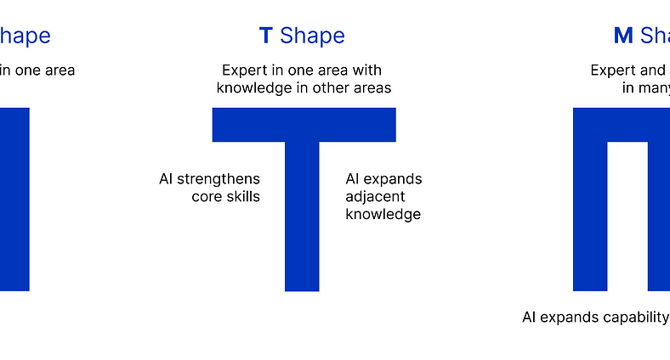Medium
1M
398

Image Credit: Medium
The Shape of AI Training: How Skill Profiles Guide AI Learning Paths
- Employees with I-shaped expertise excel in a specific domain and benefit from AI training that emphasizes depth over breadth.
- For specialist employees, AI can automate repetitive tasks, enabling them to focus on strategic decision-making within their field.
- Tools like Cursor and GitHub Copilot Workspace encourage engineers to engage deeply in product and architectural design, extending their influence beyond technical expertise.
- T-shaped employees combine deep knowledge in one area with a broader understanding of related functions, benefiting from AI training that enhances their core expertise and automates tasks in adjacent domains.
- AI tools like Custom GPTs and Cassidy AI assist marketers in proofreading content, competitive analysis, and content creation, expanding their operational reach.
- M-shaped employees blend technical, business, and creative skills, and AI can transform I- and T-shaped employees into M-shaped contributors.
- AI helps professionals rapidly prototype ideas, validate concepts, and enhance productivity across different skill profiles.
- AI education should focus on strategic application for M-shaped employees, enabling them to leverage AI for prototyping, research, and analysis.
- Technical fluency becomes crucial for engineers, product managers, and business leaders, facilitating stronger collaboration and experimentation.
- To prepare for an AI-enabled future, organizations should consider strategic goals, workflows, talent gaps, and individual growth ambitions.
- AI literacy, understanding the 'why' and 'how' of AI systems, promotes critical thinking, smart collaboration, and responsible innovation.
- By using I-, T-, and M-shaped archetypes, tailored AI training plans can be designed to amplify individual strengths within organizations.
- The future of work involves amplification through AI, enabling teams to work smarter, experiment faster, and lead more effectively.
Read Full Article
23 Likes
For uninterrupted reading, download the app